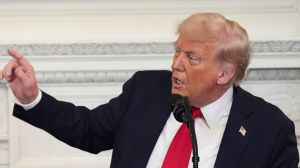Delhi HC suspends LOC against Punj Lloyd director, says prolonged travel curbs unjustified without material
Investigations must not become “an instrument for imposing indefinite constraints on an individual’s fundamental rights”, the Delhi High Court observed while allowing Atul Punj to travel abroad.
 Suspending the LOC issued against Punj, the court allowed him to travel to the United Kingdom for a period of 15 days from February 1.
Suspending the LOC issued against Punj, the court allowed him to travel to the United Kingdom for a period of 15 days from February 1.Permitting infrastructure conglomerate Punj Lloyd’s director and promoter Atul Punj to travel abroad, the Delhi High Court on Tuesday recorded that restrictions such as a lookout circular (LOC) “must pass the test of proportionality and necessity, ensuring that they are imposed only when supported by credible material.”
The Serious Fraud Investigation Office (SFIO) began investigating Punj Lloyd Limited in 2019 following directions from the Centre after the firm defaulted on credit payments to lending consortiums.
Justice Sanjeev Narula held that “prolonged restrictions on his right to travel cannot be justified” in the absence of conclusive findings against Punj after five years of investigation and considering his continued cooperation.
“Investigations must not become an instrument for imposing indefinite constraints on an individual’s fundamental rights, particularly when no substantive evidence has been presented to establish non-cooperation or obstruction by the Petitioner,” Justice Narula stated.
The court said that “…while the State’s interest in investigating allegations of financial impropriety is undeniable…the absence of tangible material on record of the Petitioner’s (Punj) intent to abscond or tamper with the investigation tilts the balance in favour of permitting conditional travel.”
Suspending the LOC issued against Punj, the court allowed him to travel to the United Kingdom for a period of 15 days from February 1.
According to the SFIO, Punj Lloyd engaged in trading activities unrelated to its core engineering, procurement, and construction business. These trading activities, rather than being legitimate, were primarily designed to facilitate the rotation of funds to address the company’s short-term financial requirements, which ultimately contributed to its default on bank loans.












